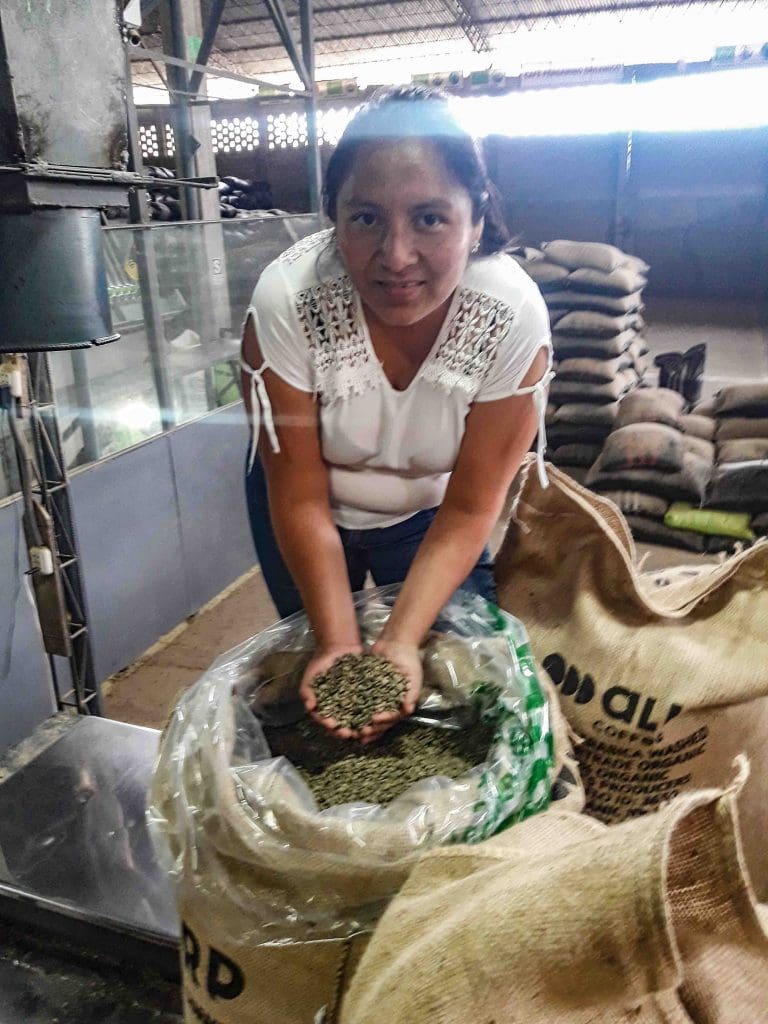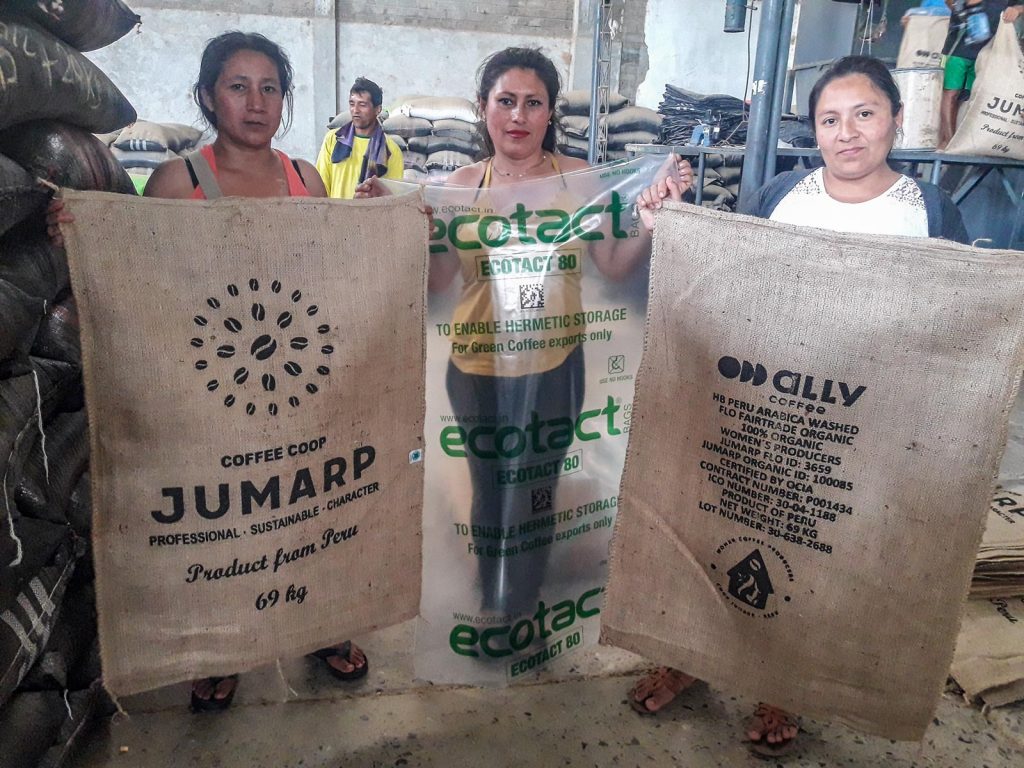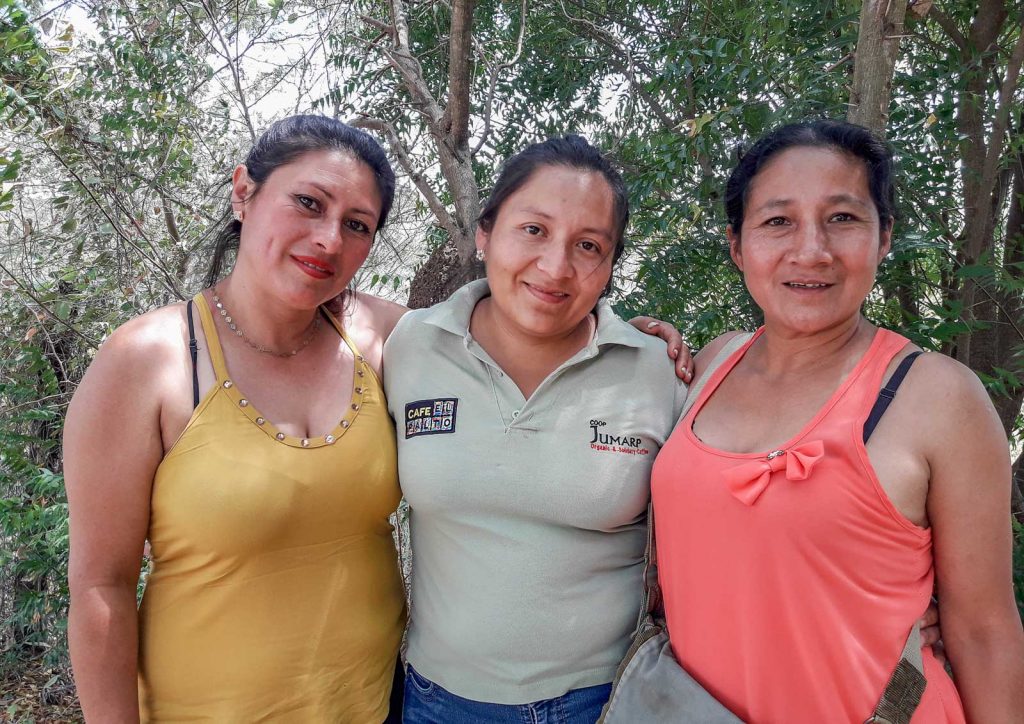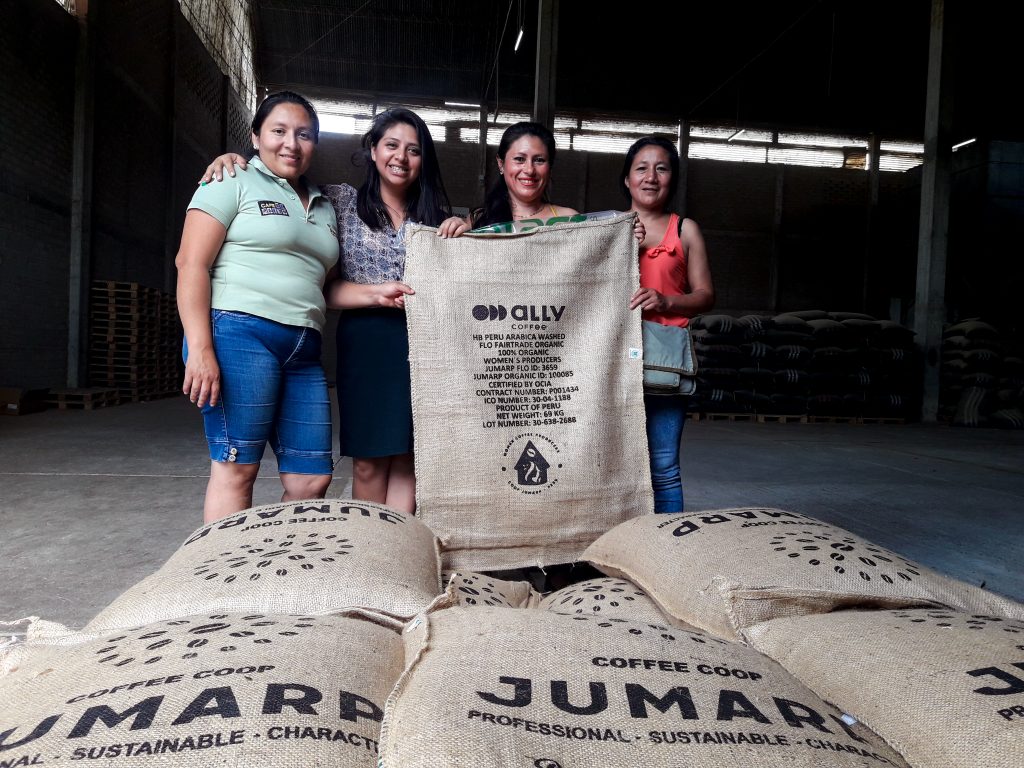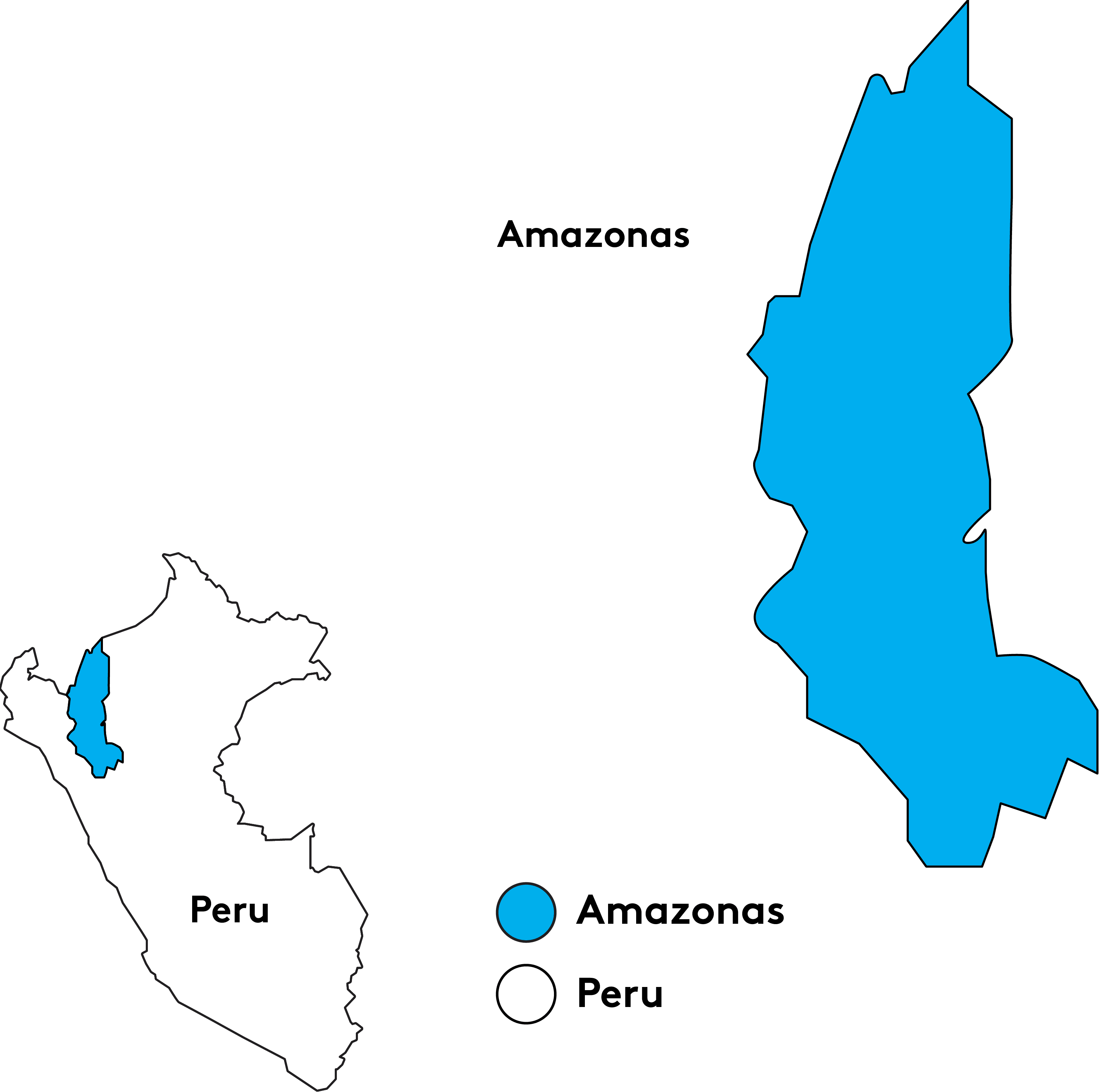The Cooperativa Agraia Juan Marco El Palto has 350 member producers in the Utcubamba province of the Amazonas region. The general objective of the Women Producer Program at JUMARP, launched earlier this year, is the economic and commercial inclusion of women members through development of a new business area under the brand “JUMARP-Mujeres.”
JUMARP-Mujeres coffee strengthens the institutional gender equality politics of the co-op and reinforces attitudes of understanding related to gender equality among all co-op members. The program develops knowledge and skills of leadership, self-esteem, decision making, entrepreneurship, management, and teamwork for women participants. Additionally, participants are trained in coffee roasting to offer the JUMARP-Mujeres product to the local market.
The program was initiated in response to the lack of active participation by women members and wives of members in fundamental co-op organizational activities, especially at the decision-making level. Even though the cooperative has taken steps to include female members, they had not seen the results they hoped for because women were not integrated into the core business of the organization.
Once the co-op identified barriers to women’s active participation, they implemented actions to guarantee a sustainable solution: including women in leadership and decision-making. This inclusion then leads to an updated approach and effective communication with markets that are characterized by a growing presence of women in various roles across the coffee supply chain and retail industry. The sum of JUMARP’s efforts also forwards their larger goals of rural development and economic sustainability.
Read more about agroforestry and carbon offsetting coffee production at JUMARP.
Program participants at time of export:
| 1 |
Diana Mabel Carranza Arévalo |
|
| 2 |
Febe Marin Baca |
|
| 3 |
Clemira Huamán Carranza |
|
| 4 |
Clara Rosa Carranza Monteza |
|
| 5 |
Floremilda Baca Ramírez |
|
| 6 |
Nilda Vaquez Chavez |
|
| 7 |
Nelly Yovani Carranza Vasquez |
|
| 8 |
Leide Roxana Carranza Vasquez |
|
| 9 |
Deisy Llanos Huaman |
|
| 10 |
Lidia Carranza Montenegro |
|
| 11 |
Bremilda Huaman Silva |
|
| 12 |
Justina Requejo Altamirano |
|
| 13 |
Erminia De La Cruz Trujillano |
|
| 14 |
Nazaria Irigoín |
|
| 15 |
Rosa Olivera Dávila |
|
| 16 |
Itamar Tello Banda |
|
| 17 |
Yolanda Visalot Quiroz |
|
| 18 |
Santos Olivera Olano |
|
| 19 |
Dolores Rodriguez |
|
| 20 |
Deidamia Inga Aguilar |
|
| 21 |
Dolores Concepción Visalot Arévalo |
|
| 22 |
Fermina Honores Rodriguez |
|
| 23 |
Evelinda Guevara Caruajulca |
|
| 24 |
Lorenza Chinguel Ramirez |
|
| 25 |
Juana Estela Baca |
|
| 26 |
Nilda Vásquez Chávez |
|

